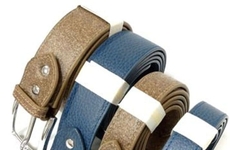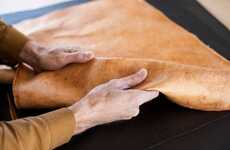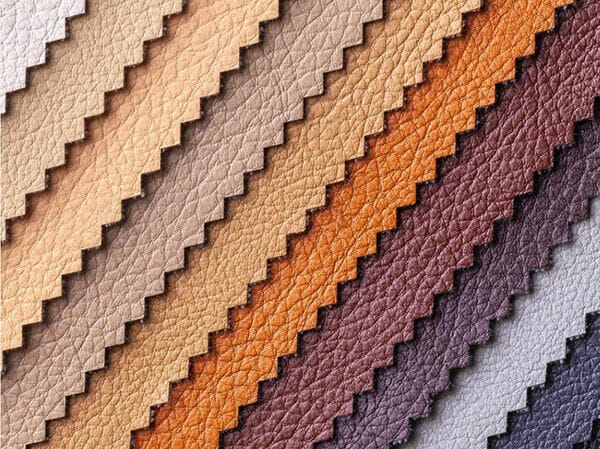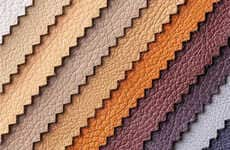
Persiskin's Vegan Leather is Made from Leftover Persimmons
Laura McQuarrie — February 21, 2023 — Eco
References: persiskin.es & italiafruit.net
Persiskin newly launched a new kind of vegan leather alternative that turns leftover persimmons into a functional, eco-friendly alternative to traditional leather. This two-in-one solution helps to reduce food waste and serve as a stand-in for traditional leather, all the while offering the benefits of animal-derived options.
The Valencian Community is the main persimmon producer in Spain and concentrates 85% of the national harvest of this fruit. As such, Valencian lands produce more than 300 million kilos of this fruit per year and this solution will help with managing the surplus fruits that are not fit to be sold. According to the company, persimmon harvests have grown immensely yet more than 50% of the total persimmon production does not reach the market.
The Valencian Community is the main persimmon producer in Spain and concentrates 85% of the national harvest of this fruit. As such, Valencian lands produce more than 300 million kilos of this fruit per year and this solution will help with managing the surplus fruits that are not fit to be sold. According to the company, persimmon harvests have grown immensely yet more than 50% of the total persimmon production does not reach the market.
Trend Themes
1. Fruit-based Leather - There is an opportunity to develop more fruit-based leather alternatives to reduce food waste and offer eco-friendly options.
2. Vegan Leather - As the demand for vegan leather alternatives rises, there is an opportunity to innovate new materials using food byproducts and waste.
3. Sustainable Fashion - With the growing concerns for sustainability in the fashion industry, there is an opportunity to develop eco-friendly materials to use in fashion items.
Industry Implications
1. Food and Beverage - Food and beverage companies can explore opportunities to sell their byproducts to manufacturers for eco-friendly materials.
2. Fashion and Textile - Fashion and textile companies can explore the use of fruit-based leather alternatives to reduce their environmental impact and appeal to eco-conscious consumers.
3. Agriculture - Agriculture companies can explore opportunities to partner with manufacturers to provide fruit byproducts for the production of eco-friendly materials.
5.3
Score
Popularity
Activity
Freshness























